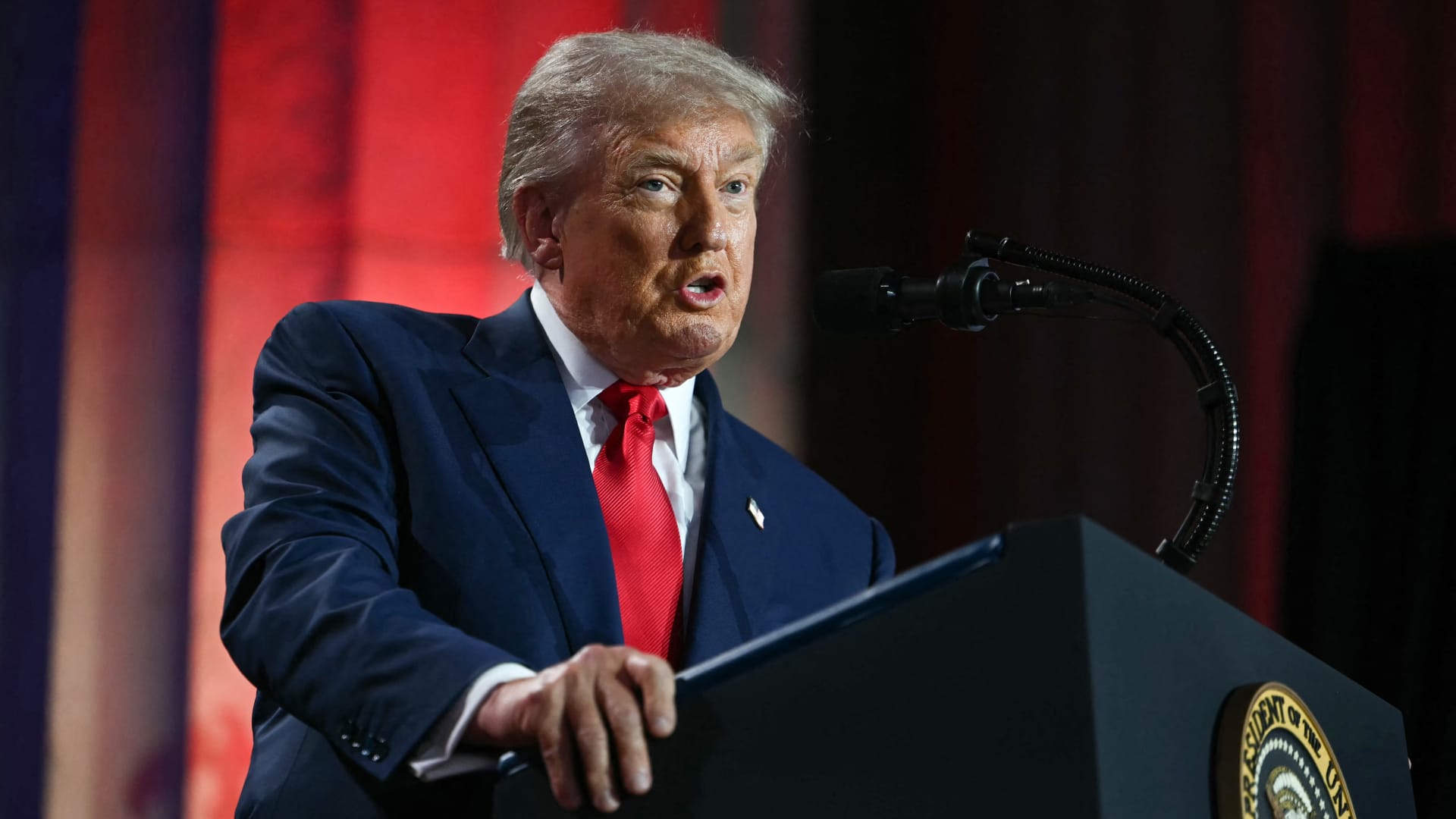Europe’s Strategic Tightrope: Balancing Deterrence and Diplomacy in a No-Deal Scenario with Trump
Introduction: The Evolving Transatlantic Landscape
The transatlantic relationship, once a bedrock of global stability, now finds itself in uncharted waters. The Trump administration’s aggressive trade policies have introduced an unprecedented level of uncertainty, forcing Europe to recalibrate its strategic approach. As the specter of a no-deal scenario looms, the European Union must navigate a delicate path—one that balances economic self-interest with the need to maintain diplomatic channels. This report explores the intricate strategies Europe is deploying, the potential consequences of these actions, and the broader implications for global trade dynamics.
The Trump Administration’s Trade Tactics: A Disruptive Force
Donald Trump’s approach to international trade has been nothing short of revolutionary, at least in its departure from traditional norms. His administration has frequently employed tariffs as both a bargaining chip and a punitive measure, disrupting long-standing trade flows and injecting volatility into the transatlantic relationship.
The Art of the Deal: Tariffs as a Negotiating Tool
Trump’s strategy is rooted in the belief that tariffs can be used to extract concessions from trading partners. By imposing tariffs on European goods—such as steel, aluminum, and agricultural products—the administration aims to pressure the EU into making concessions on broader trade issues. This approach, while controversial, has been effective in drawing attention to trade imbalances and forcing Europe to engage in negotiations.
The National Security Argument: A Controversial Justification
One of the most contentious aspects of Trump’s trade policy has been the invocation of national security concerns to justify tariffs. The administration has argued that imports of steel and aluminum pose a threat to US national security, a claim that has been met with skepticism by European leaders. This justification has not only strained diplomatic relations but also raised questions about the legitimacy of the US’s actions under international trade law.
Europe’s Strategic Playbook: Preparing for the Worst
Recognizing the potential for a no-deal scenario, the European Union has been proactive in developing a comprehensive response strategy. This strategy encompasses both defensive and offensive measures, designed to mitigate economic damage and deter further escalation.
Retaliatory Tariffs: A Calculated Response
The EU’s primary tool in this scenario is the imposition of retaliatory tariffs on US goods. This strategy is designed to create economic leverage for future negotiations while demonstrating the EU’s resolve to defend its interests. The selection of goods targeted for retaliation is a carefully considered process, aiming to maximize impact on the US economy while minimizing harm to European consumers and businesses.
Diversification of Trade Partners: Reducing Dependence
In addition to retaliatory measures, the EU is actively pursuing trade agreements with other countries and regions. By diversifying its trade relationships, Europe can reduce its dependence on the US market and mitigate the impact of any potential trade disruptions. This strategy not only provides economic resilience but also creates new opportunities for European businesses.
Strengthening Internal Cohesion: A United Front
The success of the EU’s response hinges on its ability to maintain internal cohesion. A united front is crucial in negotiations with the US and in preventing unilateral actions that could undermine the EU’s position. The European Commission plays a central role in coordinating this response, ensuring that all member states are aligned and that common rules are enforced.
The Geopolitical Chessboard: Broader Implications
The trade dispute with the US has broader geopolitical implications for Europe. It has raised questions about the future of the transatlantic relationship and the US’s commitment to European security.
Investing in European Defense: Strategic Autonomy
In light of the perceived decline in US reliability, there is growing support for strengthening European defense capabilities. This involves increasing defense spending, improving military coordination, and developing independent defense technologies. By investing in its own defense, Europe can enhance its strategic autonomy and reduce its dependence on the US for security.
Seeking Alternative Alliances: A Shifting Landscape
The trade dispute has also prompted Europe to explore alternative alliances with other countries and regions. This includes strengthening ties with China, Russia, and other emerging powers. While the transatlantic relationship remains important, Europe recognizes the need to diversify its partnerships and adapt to a changing global landscape.
The Art of Negotiation: Seeking a Resolution
Despite preparations for a no-deal scenario, the EU remains committed to seeking a negotiated resolution. This involves engaging in dialogue with the Trump administration, identifying areas of common ground, and exploring potential compromises.
The Importance of Rules-Based Trade
The EU is likely to emphasize the importance of maintaining a rules-based international trading system. It may also offer concessions on certain issues in exchange for a commitment from the US to refrain from imposing further tariffs. However, the EU is aware that negotiations with the Trump administration can be unpredictable, and a successful outcome is not guaranteed.
Conclusion: Navigating Uncertainty, Shaping the Future
Europe’s response to a no-deal scenario with Trump is a complex and multifaceted undertaking. It involves a delicate balance of deterrence and diplomacy, of protecting economic interests while seeking to avoid a full-blown trade war. The path ahead is fraught with challenges, but Europe’s commitment to multilateralism, its economic strength, and its growing strategic autonomy provide it with the tools to navigate this uncertain landscape and shape its own future. As the global trade dynamics continue to evolve, Europe’s ability to adapt and respond will be crucial in determining its role on the world stage.











